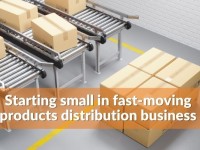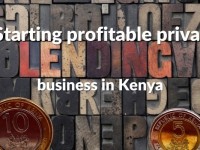Earlier this week, I was going through my YouTube feed and bumped into a Caroline Mutoko interview with Gina Din Kariuki titled Gina Din Kariuki – @20. Having drawn so much inspiration from Gina Din not only as an entrepreneur but also as a pioneer of Public Relations in Kenya, I knew the interview would come with a wealth of knowledge.
Here are some things that stood out for me from the interview about the different phases of entrepreneurship.
PHASE 1: DENIAL PHASE
The denial phase signifies the early stages of entrepreneurship where you are transitioning from employment or whatever else you are doing to entrepreneurship.
It’s called the denial phase because as a new entrepreneur, you think you’ll have more freedom, more free time and more money. You enter this phase with high excitement, high expectations and high energy while being in denial about the harsh realities of entrepreneurship.
As a new entrepreneur in the denial phase, you have a clear idea and vision about what you want to do and you can see the potential of your business but you are also not sure how to execute everything at this stage.
PHASE 2: WILDERNESS/HYENA PHASE
During the wilderness phase, your business is gradually picking up and your main focus is bringing more clients on board.
You realize you have bills to pay, new staff to hire and salaries to pay. So what do you do? Be like the hyena, and grab every opportunity available, get as many clients as you can so that you maintain cash flow.
At this point, you rarely consider the quality of impact a client’s project will have. You believe you can do it all as long as it translates into more cash for your business.
PHASE 3: BOUTIQUE PHASE
So you’ve launched your business, gone through the denial phase where you had a fairy tale about how you envision your business to turn out, your business is just starting to pick up and you have already adjusted to life as an entrepreneur. This is where you transition to the boutique phase.
The boutique phase means you are getting work done, you have secured some clients and you can comfortably pay your staff salaries and cater to your bills.
However, you still hunger for more growth.
PHASE 4: DESERT PHASE
The desert phase is probably the trickiest part for most businesses and if you are not careful, this is the phase where you get stuck.
At this point, you have an adequate number of clients, however, you still want more clients. This means you hire more staff thinking it translates to more business. You also want to probably move your office to bigger better premises at a posher location.
However, this becomes a vicious cycle that doesn’t translate into more money for your business because the more money comes in, the more it goes out to other ‘non-essential’ expenses.
The desert phase is hypnotizing, you feel good about yourself about your business and you may end up staying at this phase for too long without any notable growth.
PHASE 5: PERFORMANCE PHASE
This is the phase where you get a harsh wake up call. The issue is no longer, Is there work? But Is the work I’m doing impactful?
You realize that you don’t need to have a million clients but only a few whose work is impactful. The performance phase is where you scale down on your employees based on their professionalism, performance and stick to projects you can deliver with impact.
This phase also means you have figured out how to make more money for your business while still cost cutting and maximizing on your profit to help you be more flexible financially.
FINAL WORD: Are you an entrepreneur? Can you relate to these 5 phases?
Watch the full video below.



















